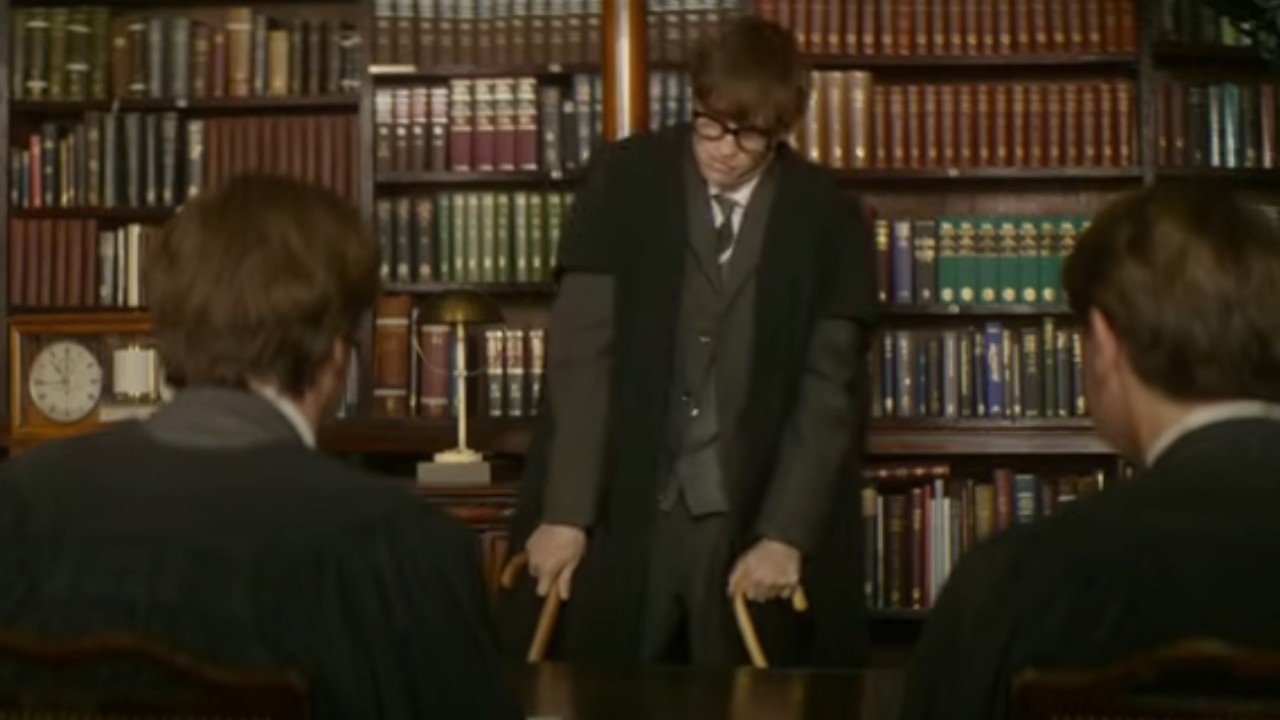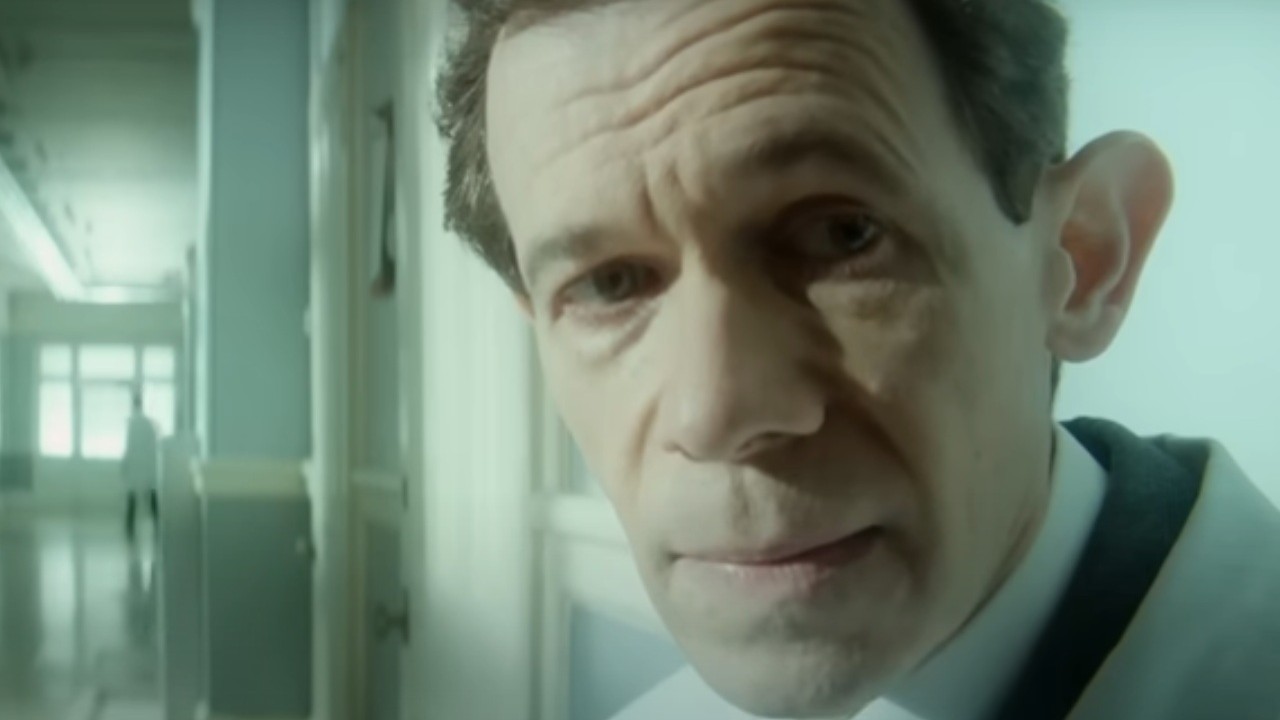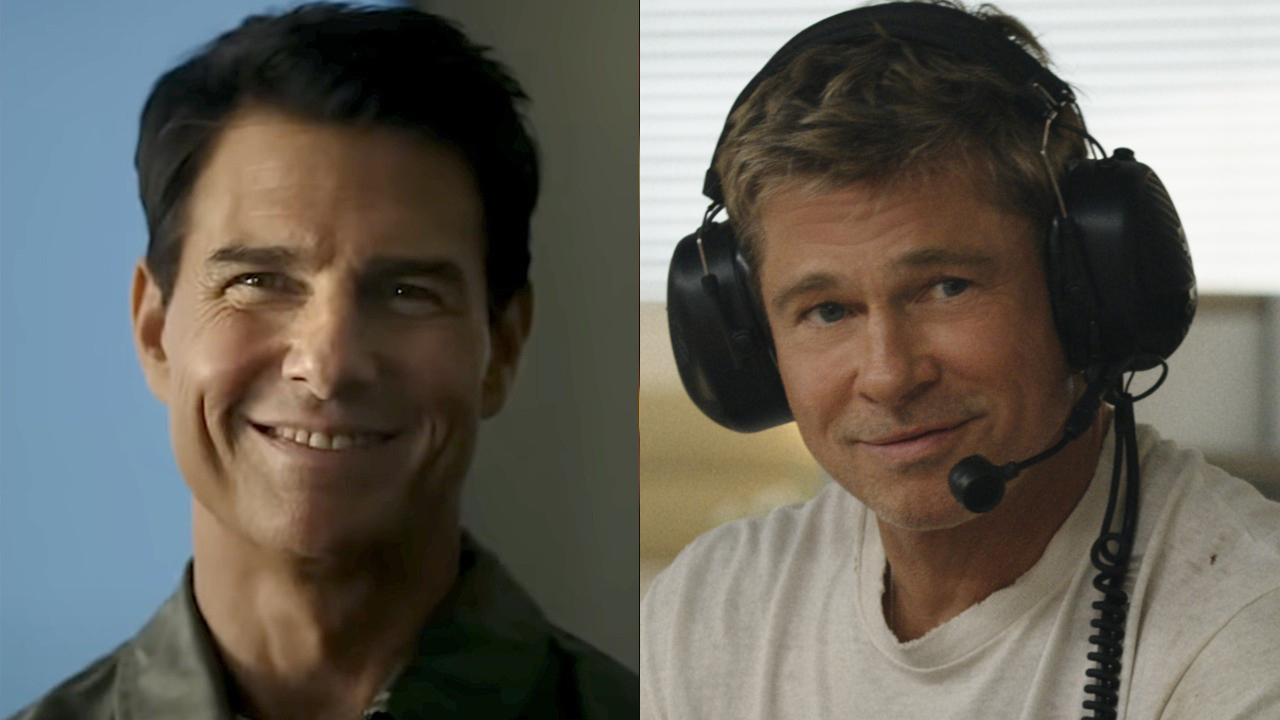I Rewatched The Theory Of Everything, And I Have One Big Takeaway This Time Around
Definitely worth a rewatch if you've only seen it once.

Back when I first watched the 2014 film, The Theory of Everything, besides just thinking it was a good movie, I – like many others, I assume – merely thought of it as “The Stephen Hawking Movie.”
And, why shouldn't I? Eddie Redmayne, who portrayed Hawking in the film, won an Academy Award for his performance, and the movie details how he came up with many of the theories that made him a household name. In every way, even though the title was The Theory of Everything, the focus was purely on Hawking.
At least, that's what I initially thought. But, upon a rewatch, I found it to be so much more than just that. Unlike many films and TV shows that leave me feeling like something is just missing when concerning stories about the disabled, I feel that The Theory of Everything handles it with nuance. Not just for the person who is disabled, but also for the people in his life. Let me explain.

Watching The Progression Of Hawking's Disability Reveals That It Could Happen To Anybody
One of my former coworkers (I’m a teacher outside of writing for this website) had a husband who had Lou Gehrig's Disease, which is also known as ALS. Knowing that it was such a sensitive subject, I gathered the courage one day to ask her how he was doing, and she told me that it was a struggle every day.
It was hard asking her since I had never heard of anybody having ALS before, so I knew so little about it. Then the ALS Ice Bucket Challenge went viral, and it seemed like everybody was talking about the rare disease. This raised a great deal of awareness nationwide, but it also made me realize that anybody could get it, even me, since it’s still not entirely known what causes it.
So, having this information stored away in my brain, I rewatched The Theory of Everything with a new sense of awareness. At the beginning of the film, Stephen Hawking seems to have it all. He’s already a genius at Cambridge – though he’s struggling to come up with a thesis – he’s dating a beautiful woman (Played by Felicity Jones, whose determination in this film is surprisingly not too different from Jyn Erso from my favorite Star Wars movie, Rogue One), and he has a good circle of friends.
But then, he starts losing control of his balance, and he receives the diagnosis of having MND (Motor Neuron Disease – which is ALS here in the States). His brain will still function, sure, but his body will deteriorate, and possibly rapidly. They give him two years to live.
Your Daily Blend of Entertainment News
Now, here you have this genius whose mind can imagine how the universe came to be, and yet, there’s nothing he can do about his disability. As the movie continues, his MND gets progressively worse (Though he lives long past the two-year life expectancy), until he’s in a wheelchair and can’t even verbally speak anymore. And yet, he never lets it deter him from greatness. Even so, this movie teaches that nobody is immune to illness. It’s a sobering thought, but a very real one.

It Is Also Intriguing To Watch How People Respond To His Disability
When I first watched this movie, I was mainly focused on Stephen Hawking. However, while I rewatched it, I focused a great deal on the other people around Hawking and how they responded to his disease.
For instance, in the scene where Hawking receives his diagnosis from the doctor (Played by Adam Godley), you get a sense that the doctor is doing his best to deliver the news that Hawking will die young, but also a sense that the doctor is well aware that there is nothing he can do about it, so it’s delivered like he’s already talking to a dead man.
When Hawking later goes to discuss his thesis while using dual canes, the first question he is asked is whether he would like to take a seat, which he declines, only to be asked again.
This is something I notice in my own behavior whenever I find myself around somebody in a wheelchair. I run to the door and open it for them, and they say thank you. Still, I always wonder what impression I’m giving, and if they would prefer that I didn’t do this and would rather just open the door for themselves. They probably get this all the time, and I hope that they don’t view my desire to help as a sign that I don’t think they’re able to do it themselves. I would hate that.
But, back to the movie. In a later scene, we see Hawking struggling to speak, and it’s almost like people are talking around him, as if he’s both in the room, but also not in the room. This was actually harder for me to watch a second time since I could only imagine how Stephen Hawking must have felt as his wife discussed his theories to somebody else for him. It’s a really powerful movie, especially when, as I mentioned earlier, ALS could happen to anybody. But, about Hawking’s wife…

His Wife's Effort To Come To Grips With His Struggle Feels Universal
Now, even though the movie is adapted from the memoir, Traveling to Infinity: My Life With Stephen, which was written by his ex-wife, Jane Hawking, I’ve read that the film takes some creative liberties…and doesn’t entirely give his wife a fair shake. Be that as it may, I really only have the movie to go off of since I haven’t read the memoir, and the Jane in this film handles Hawking’s ALS much in the same way that I imagine my former coworker did.
By that, I mean being as supportive as humanly possible. Because all throughout the film, Jane does her best for her husband. She marries him, even despite knowing his diagnosis, and has children with him, even though he could die at any time. When a doctor gives her a way out and says that they can disconnect him from a ventilator, she refuses.
She even comes up with a way for him to communicate once he loses the ability to speak verbally. It almost reminds me of the Brian Wilson movie, Love & Mercy, in that the woman in Brian’s life, Melinda Ledbetter, seemed to move Heaven and Earth to get her partner out of the slump he found himself in amidst overwhelming odds.
Then, Hawking has an affair with his nurse, and his wife, who says she “did her best,” goes back to a man named Jonathan (played by Daredevil’s Charlie Cox), whom she also loves. You really do feel that Jane did everything possible for Stephen. After a while, she became more caregiver than wife, and both she and Stephen recognized that their relationship had gone down that route.
I knew Felicity Jones did a great job the first time I watched this movie (She did get nominated for an Oscar, after all), but it was only upon this second viewing that I truly saw that this is just as much her story as it is Stephen’s.

Seeing The Great Things That He Accomplished Is Reaffirming That People Will Always Be More Than Their Disability
Lastly, if there’s any final takeaway from this film, it’s that you can be diagnosed with a terminal, terrifying disease, and still change the world, which is extremely reaffirming.
I think back to the ice bucket challenge, and how it grew so big that even celebrities started doing it. It all started from a humble place, as Anthony Senerchia, who has unfortunately since passed, was diagnosed with ALS, and he and his wife got the ball rolling on getting people to start talking about the disease.
As I said earlier, I only knew one person who knew another person who had ALS, but in 2014 (Which was the same year The Theory of Everything came out) it seemed like everybody was talking about it, and it mostly sprung up because of a husband who had the disease, and a wife who wanted others to know, and possibly help.
And this movie also proves that a person who has a disability is always more than just their disability. Yes, it is a part of who they are, but it is not ALL they are. Stephen Hawking is world-renowned, and he did most of it from his wheelchair.
In the end, it’s a story about overcoming the odds that might exist even inside of you, and still prevailing. That’s a message that I think anybody can learn from.

Rich is a Jersey boy, through and through. He graduated from Rutgers University (Go, R.U.!), and thinks the Garden State is the best state in the country. That said, he’ll take Chicago Deep Dish pizza over a New York slice any day of the week. Don’t hate. When he’s not watching his two kids, he’s usually working on a novel, watching vintage movies, or reading some obscure book.
You must confirm your public display name before commenting
Please logout and then login again, you will then be prompted to enter your display name.
